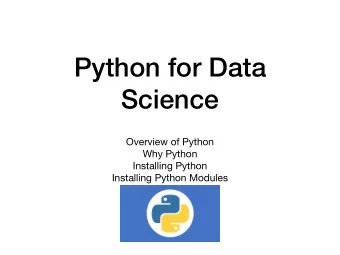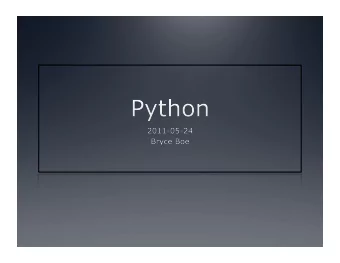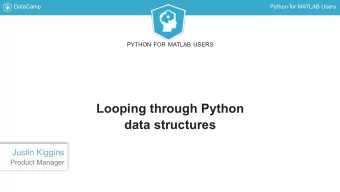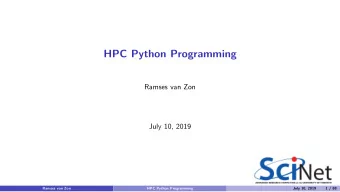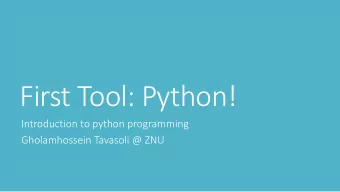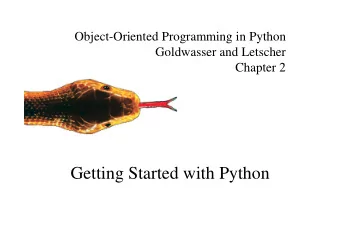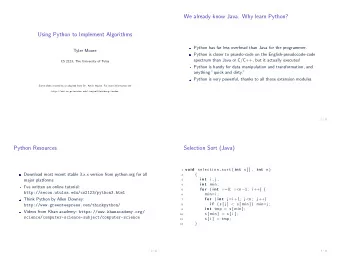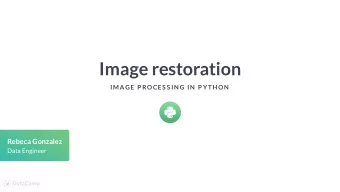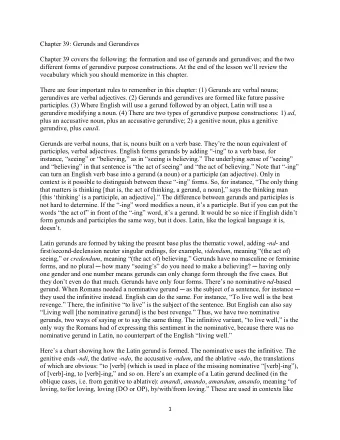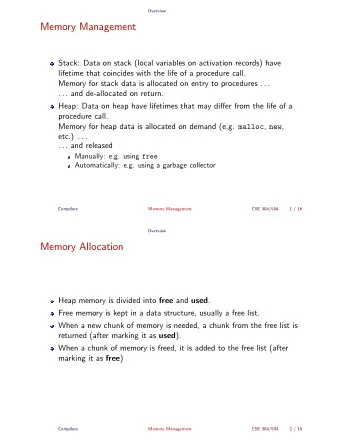
Idiomatic Python from idiomatic C++: removing barriers to rapid - PowerPoint PPT Presentation
Idiomatic Python from idiomatic C++: removing barriers to rapid scientific development Toby St Clere Smithe Project Overview New infrastructure in ROOT 6 cling C++ interpreter based on LLVM knows about modern C++ Point and
Idiomatic Python from idiomatic C++: removing barriers to rapid scientific development Toby St Clere Smithe
Project Overview ● New infrastructure in ROOT 6 – cling C++ interpreter – based on LLVM → knows about modern C++ ● “Point and go” C++ bindings – just tell PyROOT / cppyy where the source or precompiled module is, then use it like any Python extension! ● But: some things require manual tuning – no one-one mapping from C++ to Python ● Longer term: loosen direct dependency on ROOT ● Code, tests and documentation should be merged soon!
“Pythonizations” ● The core of the project: how can we make interacting with C++ more like idiomatic Python? – for both the CPython and PyPy versions ● “Pythonizations” are strategies to implement this camouflage. – In particular, they are usually functions that are called when a new type is instantiated. – If the name of the new type matches a user-supplied pattern, then the function applies some change to the type.
New Pythonizations ● GIL policy: should this function release the GIL? ● Return value ownership policy (eg, for raw pointers) ● Smart pointer policy: do we “hide” the smart pointer? – more on this later ● Class attribute renaming ● Adding overloads to class methods ● Class method composition ● Automatic transformation of getter and setter methods into Python properties
C++ exception mapping ● Catches the C++ exception in the C++ part of the wrapper (if it is of type derived from std::exception) then uses the reflection information to identify its full type ● Matches the full type against any user-defined mappings; if a match is found, raises the appropriate python exception with the C++ exception message (the C++ “what()”)
Type pinning ● Sometimes, it is desirable to cast objects explicitly from one type to another ● Looking at ROOT-6073, it can be useful to do so systematically ● This part of the project adds type pinning, so that one can say, “instead of returning MyDerivedType, give me MyBaseType every time” . ● It is now also possible to add exceptions to the pinning, and cast objects individually.
Smart pointer handling: memory management ● Because Python is garbage-collected, the user doesn't usually think about memory management ● Directly interfacing with C++ code forces us to be more careful, since we want the C++ objects by default to live as long as we need them, but no longer – sensible defaults, with manual tuning
Memory management ● For instance, if a C++ function returns by value, we take ownership of the resulting object. ● If it returns by reference, we do not. ● But also if it returns by raw pointer, we do not, because we do not know what semantics are expected, and we want to be safe by default. – We do not want to free memory prematurely, but this leads to leaks.
Smart pointers ● Objects that hold a raw pointer, and encode the associated ownership semantics – eg, reference counting with shared_ptr or sole ownership with unique_ptr ● Usually passed and returned by value – when C++ code returns one, the Python wrapper takes ownership (nb: not of the underlying pointer). ● If the smart pointer object is deleted, then its destructor decides what to do with the underlying pointer. ● But the Python user doesn't care! – only interested in using their type T, not shared_ptr<T> or even my_smart_ptr<T>!
Manage smart pointers transparently ● Functions that return shared_ptr<T> now look like functions that return T, and the resulting python wrapper objects can be treated the same. – Includes being passed to functions taking either raw T* or shared_ptr<T> (but not any other smart pointer). – Also possible to get a python object representing the associated smart pointer directly, if the user so wishes. – But if a python object wraps a raw T*, then it still cannot be passed automatically to a function expecting a smart pointer: these must be created explicitly. ● Still obvious to the user if some object is managed by a smart pointer – string representation says so – _get_smart_ptr method returns not None. ● However, the point is that the user shouldn't have to care any more!
On-going and future work ● Buffer protocol ● Separation of layers and shared PyPy/CPython internal API
Future work: buffer protocol ● Say you have a C++ object representing a matrix. ● Then it would be nice if it were natively available to NumPy operations. ● This requires changing the CPython type so that it can answer questions like “how large is this buffer? what is the associated memory layout?” ● (… PyPy buffer support is more rudimentary)
Future work: separation of layers ● Easy to imagine cppyy being broadly popular, outside of ROOT. ● But at the moment, the CPython version depends on a fairly large set of core ROOT functionality, and is built from within the ROOT tree, with all the attendant complexity. ● The PyPy version is quite different, but lags behind recent developments in ROOT 6. ● Therefore, there is on-going work to separate the layers of cppyy more satisfactorily, including refactoring the ROOT dependency into a thin layer, and providing a minimal build tree for non-root users. ● This would also help in unifying the PyPy and CPython versions.
Any questions?
Recommend
More recommend
Explore More Topics
Stay informed with curated content and fresh updates.
